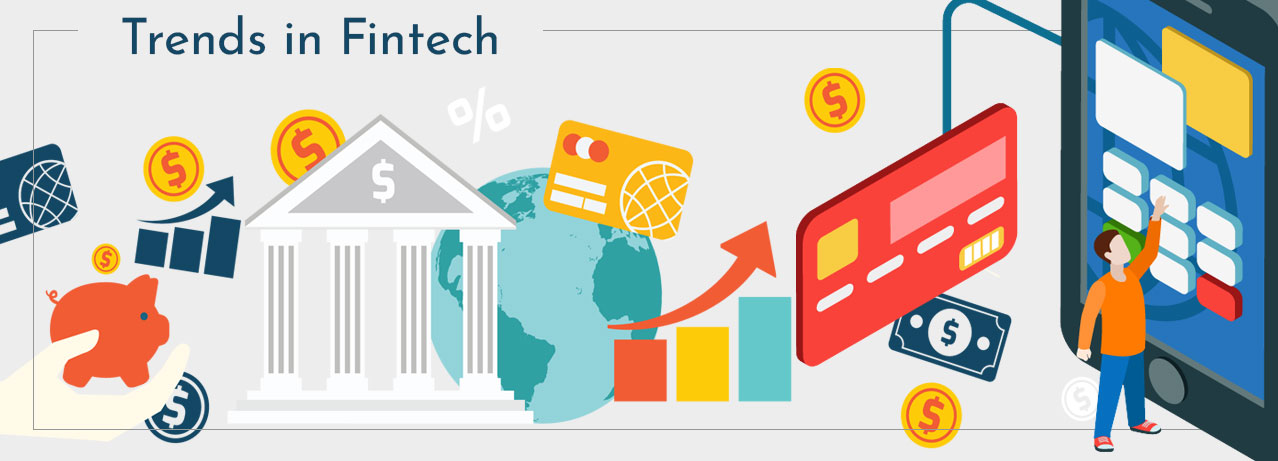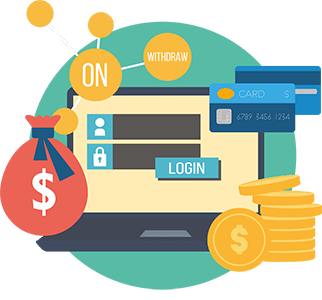
Emerging trends in fintech for the year 2021
The year 2020 wasn’t a great year for most industries, but interestingly enough Fintech Reported record growth during a period that saw many businesses struggle. Though the growth can’t just be attributed to the pandemic, one can say that it has only accelerated. Historically, Fintech has always shown fast record growths during any of the stressed times. As per PWC in its Fintech Service report 2020, the investments in Fintech-related companies have tripled since 2014 to over $12 Bn and with no indication of a trend reversal.
With the industry set to offer even more solutions and innovations in the coming year, let us take a look at some trends that are set to influence financial services in the year 2021.
Personal finance management
While in-person personal finance managers are a common sight in the finance world, there is a huge market of people who can’t afford to pay the money required for such services. As Pandemic induced lockdowns have already pushed us online, online personal finance management is a thing that’s fast becoming mainstream.
With algorithms and codes becoming finer and better at analytics and predictions, there is an increased acceptance for AI produced models amidst the people. A mix of AI, ML, and RPA used in such platforms provide multiple benefits to both customers and companies. Personal Finance is now becoming accessible to people through mobile apps with consumption via single point platforms.
Technologies that can analyze, deliver and manage data are helping financial service providers to reduce the time and cost of workflows, thus further helping in reducing the cost of personal financing for customers. Effectively this makes it easier to manage your finances from home, bringing fintech innovation literally to the consumer’s screens.

Banking with digital banks and neo banks
Digital Banks or Neo Banks have brought a noticeable disruption in the Banking Industry. While internet banking is not a new concept, a bank that has no branches and can cut the redundancies of paperwork and hassles of authentication, and being 24×7 accessible on your desktop/ mobile is a prospect that appeals to everyone.

Digital Banks not only offer more flexibility over traditional ones but also bring innovative services which are less time consuming and efficient, at a cost lower than the legacy players. Chatbots have become a standard bank offering by personally assisting consumers via automation. In a recent report by The Financial Brand, it’s stated that physical visits to banks are expected to drop by a staggering 36% by the year 2022 while mobile transactions are to rise by 121%.
Digital Banks pose a determinant change to traditional banking over the coming decade. As people get attracted to simpler ways of banking and finance management without the hassle of visiting the branch or waiting for lengthy processes, Digital Banks shall start to take the center stage.
Digital lending
As with other digitized traditional banking services, Digital Lending, especially Marketplace lending and microlending are expected to get a boost in the coming year. With platforms building integrations with a variety of banks and lending entities, loans can now be offered without extensive paperwork and lengthy processes. Digital Lending marketplaces with microlending capabilities ensure faster loans while bringing the best competitive rates.
With the booming digital lending and microlending / marketplace environments mushrooming around the world, Fintech companies are now contributing to increase the financial inclusion across diverse economic strata of the society. Post Pandemic economic recovery is expected to be led by SMEs powered by Lending, via both traditional and digital lenders.
As per ReportLinker, the digital lending market is expected to register a CAGR growth of 11.9% from 2020-2025. This sustained growth is attributed to the rapid rise in adoption of digitisation across the BFSI industry.

Insuretech
While Insurance selling marketplaces are not new to tier 1 cities, similar levels of internet connectivity to tier 2 and tier 3 cities brings an opportunity for Insurance companies and brokers to tap this huge market directly.
Automated regulation-compliant onboarding process, powered by the latest technology, is bringing ease to these new consumers. High-speed profile analysis and faster assessment of cases are now making the insurance management easy for all stakeholders. All of this combined with a unified marketplace strategy to bring offerings from biggest insurance providers at one place is going to make this space a priority among Fintech investors.
As mentioned by KPMG in their research report, Covid-19 has led to an increase in both digitization and insurance services. In what is attributed to the social distance requirements along with increasing life and medical coverage requirements, Insuretech is all set to be a winner this year.
Investment management
Bringing Stock Markets and Mutual Funds to consumers’ mobile has been one of the revolutionary aspects of the Fintech innovation lifecycle. Managing and tracking Investments around the world is now easier than ever. With digital hybrid advice now a reality, wealth management is getting personalized at scale.

Fundings to products in this space are expected to continue similar to last year, with some of the biggest investment rounds expected in 2021. Recent research published by Celent (the tech-advisory firm of Oliver Wyman) in the year 2020 shows the projection of CAGR growth for Spending by Online Wealth Management as 5% year on year till an approximate value of $24 Billion by the year 2023.
As the effects of global Pandemic subside, Investment recommendation engines powered by Fintech companies are expected to grow exponentially, in part due to the addition of new retail investors that are joining the investment machinery as it becomes more and more accessible to all.
Mortgage and real estate
When asked about hassles of Mortgage and Real Estate investments, most people revert to the huge fee charged by dealers and brokers in such a transaction adding to the total cost of the whole operation. Digital Mortgage and IT-based Real Estate management are now being adopted by traditional banking entities.
New products and services in the mortgage are the need of the hour in this new world post-pandemic and the digital age of Fintech is helping to bring these new offerings. Blockchain and DLT (distributed ledger) are also contributing to maintaining a single source of truth, especially in international and multi-party real estate acquisitions. Peer to peer enablement in real estate is going to have a far-reaching impact in future, ensuring minimal conflict of interests in the entire chain.

Platforms are now making it possible for people to own homes without paying an extra processing fee and dealer fee, as well as catering to segments like individual farmers and lower-income groups, thus bringing transformation at a grassroot level.
Regtech
Regulations are an intrinsic part of Fintech machinery. Thorough background checks and compliance regulations must be carried out with no impact on the level of diligence. This is now becoming possible with digitized and automated solutions becoming a new way of enforcing regulations and a faster lifecycle.
Regtech solutions currently being utilised can broadly be classified as identity management, regulatory compliance, transaction management, risk management, and compliance software. Services of Regtech specialist providers help in drastically reducing the compliance-related overhead of the financial industry. With online identity checks, biometric authentications, approvals and authorisations happening now in realtime, digital financial platforms are becoming the preferred route of fintech consumers, with regtech being the primary enabler.
Conclusions
Traditionally, the mainstream fintech industry has been a slow adopter of technology, but has picked up pace from the year 2018. The trends mentioned above have emerged due to urgent consumer requirements, which are forcing the Fintech industry to upgrade its mindset. Consumer behaviour is also rapidly changing and embracing technology and innovation easily.
As the Financial space becomes more inclusive and Fintech goes mainstream in the BFSI industry, there is going to be an increased need for expert Fintech Software Development Service providers to carry the innovation lifecycle to the next stage. More power to consumers driving the fintech adoption, which is set to increase in coming times.
Share this post
About the Author

Shailendra Gupta
(CEO at Mind IT Systems)
Shailendra is CEO of Mind IT Systems and is responsible for strategy and business relations. With around one and a half decade of experience in getting things done, be it in sales, delivery and technology, he has a successful track record of leading startups and mid-size companies and being a prime contributor in growth and value creation.

